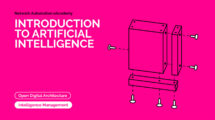The second NREN educational technologies and services workshop, organised by Gyongyi Horvath from GÉANT, was held in Budapest earlier on this month. The event’s objective was to further explore the need to form a future task force on educational technologies and services (TF-EDU) and to discuss some previously selected topics. The workshop’s format accommodated presentation sessions and in-depth discussions.
NRENs educational services and their organisational aspects was the opening topic. Vegard Moen, Norway (UNIT), Krzysztof Kurowski, Poland (PSNC) and Dragana Kupres, Croatia (CARNET) shared their journey towards the development and the creation of educational services for their educational institutional members, how they prioritised the services and underwent internal organisations from a governance and financial perspective. Representatives from the Netherlands (SURFnet) also shared their experience and current situation.
Michiel Schok from SURFnet presented eduID. He gave an overview of the status of the project, from his project leader perspective, and SURF’s current development plans. Potential collaboration opportunities were identified during the discussions that followed:
1. Sharing use cases for business models, user experiences, common technical thread, overview of tools to use
2. Create a map of the eduID world (including challenges), involve REFEDS with the identification of movement for the federated openID connect (OIDC).
The workshop covered also EduBadges, another project led by SURFnet with a presentation by Frans Ward. EduBadges – which links well to eduID – is a tool for flexible education and student mobility that will provide a more flexible and transparent approach to curriculum and grading for all learners. It emerged that not only alignment on the proposed open badge metadata extensions is needed, but also that the information that goes into the metadata should be aligned to make the badges comparable. For its the adoption and uptake, the project should to focus on market analysis, in terms of demand and willingness of employers to adopt formal badges and plans to develop a sustainable funding model and exit strategy.
The workshop also addressed the adoption of open standards. Wietze de Vries from SUNET presented the organisation’s involvement and reasons for taking part in the creation of open standards for educational technologies and why they believe in the importance of being an IMS Global* member. IMS (presented by Nynke de Boer, IMS Europe) works with all stakeholders: NRENs, educational institutions, ministries, vendors. Their experts regularly identify educational tech trends. Many NRENs are running their own projects, procurements and developing tools. Long-term planning interoperability is necessity for ed tech development. Being part of the process that defines the standards and having certified tools is also vital. Joint forces and collaborations save resources, support faster development and better service quality.
At the end of the workshop participants supported the idea to create a structured group for knowledge-sharing, especially at the higher organisational level of educational services and activities among NRENs. NRENs will then need to be the connecting forces and points of reference for the activities at HE (Higher Education) level in each country.
For more information about the workshop, click here.
To subscribe to the Task Force on Education, please click here
*The formal name for IMS is IMS Global Learning Consortium, Inc., also sometimes referred to as IMS Global or IMS GLC. When IMS first started in 1997 was the Instructional Management Systems (IMS) project. Over time, many other names became more popular, such as Course Management System, Learning Management System, Virtual Learning Environment, etc. Therefore, IMS kept the acronym, but to stand for a much larger body of IMS work to date and into the future.







